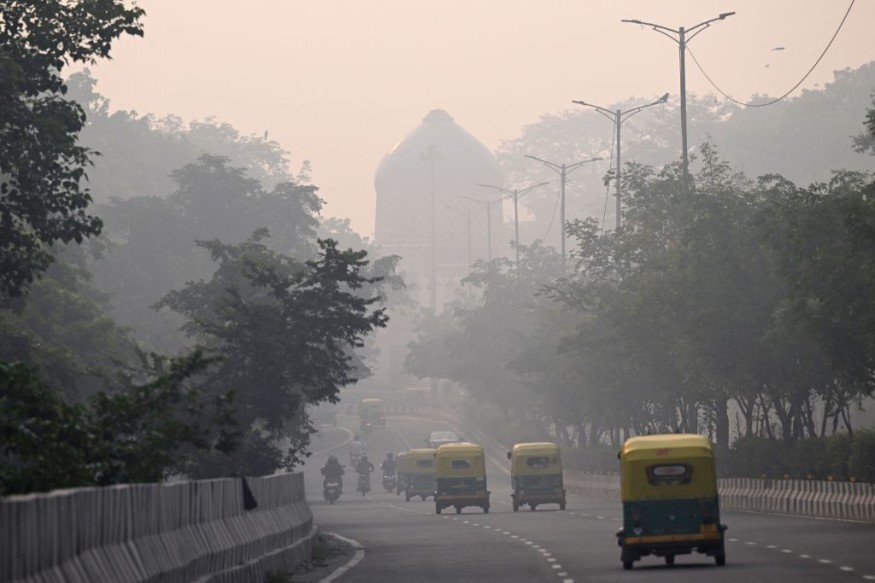
A day after hundreds of thousands of people celebrated Diwali, the annual Hindu festival of light, India's capital was named the world's most polluted city once again.
The deadly cloud that blanketed New Delhi has intensified due to unfavorable weather conditions.
Delhi's Worsening Air Quality
According to Swiss organization IQAir, the air quality index (AQI) for New Delhi was 400+, placing India's national capital in the "hazardous" category for filthy air once again.
This occurred after unseasonably heavy rain in the city reduced the AQI from 400 to 160 on Friday. Fireworks were set off early Sunday morning to kick off Diwali celebrations. A dense layer of smog then engulfed New Delhi, sending the AQI beyond 680 and even over 1,000 in certain locations shortly after midnight.
Delhi was joined by two other Indian cities-Kolkata and Mumbai-in the top ten polluting cities in the world as of Monday.
Delhi had an AQI of 407, Mumbai came in sixth with an AQI of 157, and Kolkata in the east came in seventh with an AQI of 154.
Firecracker Ban
Every year, authorities in the capital prohibit the use of fireworks, although these prohibitions do not appear to be enforced.
People disobeyed India's Supreme Court's ban on firecrackers, which was imposed across the country, ahead of the Hindu festival of light on Sunday night.
However, in a clash between religious convictions and civil order, citizens of Delhi have consistently disregarded such laws on the sale, purchase, and usage of chemical firecrackers.
"It is obvious that the ban [on firecrackers] has been flouted with impunity because if you look at the AQI levels across various cities in India, they ranged from very poor to hazardous," said Manish Tewari, an Indian parliament lawmaker representing the Congress party.
However, lawmakers from Modi's Hindu nationalist Bharatiya Janata Party (BJP) have stated that legislative directives prohibiting the use of polluting firecrackers in order to manage air quality are an attack on their Hindu faith.
"The people in Delhi are already very distressed. They were not allowed the joy of firecrackers. Kids and youth like celebrating a certain way. Very few firecrackers and green crackers were burst but Congress and other parties have a problem with people celebrating Diwali," said Manoj Tiwari, a prominent BJP lawmaker in New Delhi.
Doctors warned that breathing in Delhi's filthy air is similar to the damaging effects of smoking 10 cigarettes every day.
Prolonged exposure to high levels of pollution can induce or exacerbate respiratory disorders like asthma, bronchitis, and chronic obstructive pulmonary disease (COPD), as well as significantly increase the risk of cardiovascular disease, according to the researchers.
During the winter, unfavorable weather conditions, combined with automobile emissions, paddy-straw burning, firecrackers, and other local pollution sources, lead to dangerous air quality levels in Delhi-NCR.
According to the Delhi Pollution Control Committee (DPCC), the city sees peak pollution from November 1 to 15, when the number of stubble-burning occurrences in Punjab and Haryana rises.
© 2025 NatureWorldNews.com All rights reserved. Do not reproduce without permission.





